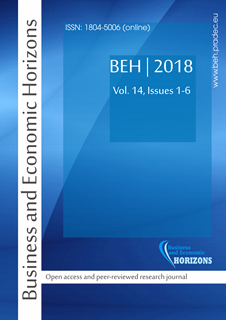An analysis of the relationship between foreign direct investment (FDI), political risk and economic growth in South Africa
An analysis of the relationship between foreign direct investment (FDI), political risk and economic growth in South Africa
Author(s): Daniel Francois Meyer, Thomas HabanabakizeSubject(s): Economy
Published by: Prague Development Center
Keywords: ARDL model; economic growth; foreign direct investment; political risk; South Africa
Summary/Abstract: A country’s political stability and trends in economic growth are important factors to attract foreign investment. Most developing countries struggle to achieve political stability and high levels of growth. Due to these issues, developing countries attract limited foreign investment. Applying the Bounds test for cointegration, an ARDL model was utilized using time series data from 1995 to 2016, this study examined the potential impact of political risk and gross domestic product (GDP) on foreign direct investment (FDI) flows to the South Africa. Findings of the study revealed that in both short and long run, political risk and economic growth affect the level of foreign direct investment. The political risk rating was found to have a higher impact on FDI flow if compared to GDP. The lower the political risk level (resulting in a highly rated index), the higher the level of FDI inflows. Using the Granger causality approach, empirical results indicated a bi-directional causal relationship between FDI and economic growth, while it was found that political risk causes changes in FDI. In other words, individually, political risk and gross domestic product cause changes in FDI. Based on the study findings, it is imperative for the South African government to reduce the level of political risk in order to increase foreign investment into the country which, in return, could assist in economic growth and welfare.
Journal: Business and Economic Horizons
- Issue Year: 14/2018
- Issue No: 4
- Page Range: 777-788
- Page Count: 12
- Language: English

